2022 Speakers
Department of Economics and Hobby School Center for Public Policy
Political Economy Speaker Series
Please join us for a talk by:
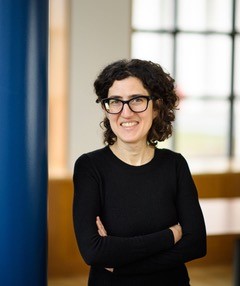 Rocío Titiunik, PhD
Rocío Titiunik, PhD
Department of Politics, Princeton University
Date: Tuesday, November 29, 2022
Time: 4:00-5:15pm
Location: Science Building Room 202 (S202)
Title: "The Incumbency Curse in Developing Economies”
We study the incumbency advantage of political parties in developing democracies. Focusing on Latin America's subnational executive elections, we start by documenting that in many countries, political parties that win an election have a significantly lower chance of victory in the following election. This incumbency disadvantage phenomenon is systematic, and affects countries with diverse political systems. We conjecture an explanation based on the interaction between individual politicians and their parties: if the party is limited in its ability to incentivize politicians, politicians may choose actions that hurt the party brand, and voters may in turn punish the party for the behavior of politicians who are no longer on the ballot. This is likely to occur in a context where careers have short time horizons. We study term limits reforms in several Latin American countries and show that, within and across countries, the phenomenon of incumbency disadvantage is in fact related to the time horizon of individual politicians' careers. We also show that the incumbency curse seems to afflict parties that are weak or weakening. Our results suggest that the curse of incumbency may lead to a self-reinforcing cycle of party system erosion.
About the Speaker: Rocío Titiunik (Princeton University)
Rocío Titiunik is Professor of Politics at Princeton University, where she is also an associated faculty with the Department of Operations Research and Financial Engineering, the Center for Statistics and Machine Learning, the Program in Latin American Studies, the Center for the Study of Democratic Politics, and the Research Program in Political Economy. She specializes in quantitative methodology for the social and behavioral sciences, with emphasis on quasi-experimental methods for causal inference and program evaluation. Her research interests lie at the intersection of political economy, political science, statistics, and data science, particularly on the development and application of quantitative methods to the study of political institutions. Her recent methodological research includes the development of statistical methods for regression discontinuity (RD) designs. Her recent substantive research centers on democratic accountability and the role of party systems in developing democracies.
https://scholar.princeton.edu/titiunik/bio
Department of Economics and Hobby School’s Center for Public Policy Political Economy Speaker Series
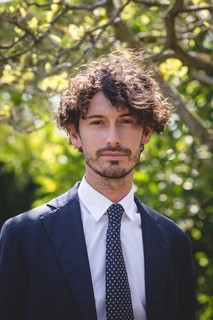 Speaker: Edoardo Teso, Kellogg School of Management, Northwestern University
Speaker: Edoardo Teso, Kellogg School of Management, Northwestern University
Date: Tuesday, November 8, 2022
Time: 4:00-5:15pm
Location: Science Building Room 202 (S202)
Title: "Politics at Work" (with Emanuele Colonnelli and Valdemar Pinho Neto)
Abstract: We study how individual political views shape firm behavior and labor market outcomes. Using new micro-data on the political affiliation of business owners and private-sector workers in Brazil over the 2002–2019 period, we first document the presence of political assortative matching: business owners are significantly more likely to employ copartisan workers. Political assortative matching is larger in magnitude than assortative matching along gender and racial lines. We then provide three sets of results consistent with the presence of employers’ political discrimination. First, several patterns in the micro-data and an event study are consistent with a discrimination channel. Second, we conduct an incentivized resume rating field experiment showing that owners have a direct preference for copartisan workers opposed to workers from a different party. Third, we conduct representative large-scale surveys of owners and workers revealing that labor market participants view employers’ discrimination as the leading explanation behind our findings. We conclude by presenting evidence suggesting that political discrimination in the workplace has additional real consequences: copartisan workers are paid more and are promoted faster within the firm, despite being less qualified; firms displaying stronger degrees of political assortative matching grow less than comparable firms.
About the Speaker: Edoardo Teso is an Associate Professor (without tenure) of Managerial Economics and Decision Sciences at the Kellogg School of Management at Northwestern University. He is also a Research Affiliate at the Center for Economic and Policy Research (CEPR). Teso's research is in the areas of political economy, organizational economics, and development economics, He obtained his Ph.D. from Harvard University in May 2018.
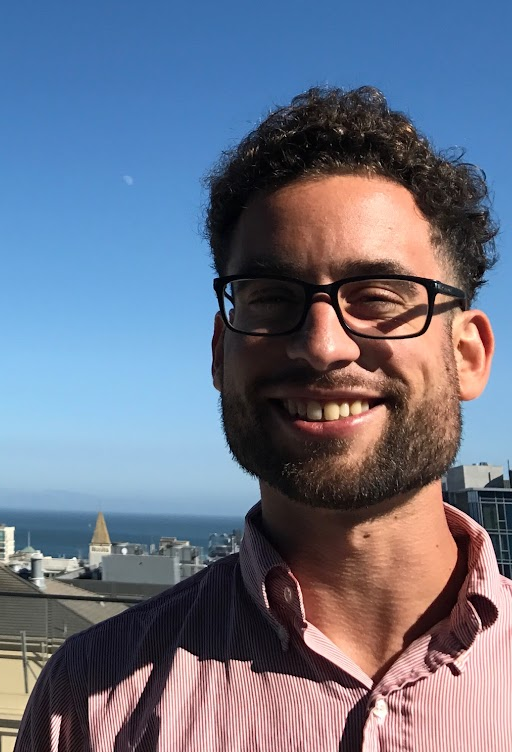 May 3, 4 p.m.
May 3, 4 p.m.
Jake Grumbach, University of Washington
Title: Laboratories of Democratic Backsliding
Political Economy Speaker Series co-hosted with the Department of Economics
In-Person: Science Building, Room 101
Via Zoom: Contact hobbycpp@central.uh.edu
Abstract: The Trump presidency generated concern about democratic backsliding and renewed interest
in measuring the national democratic performance of the United States. However, the
U.S. has a decentralized form of federalism that administers democratic institutions
at the state level. Using 51 indicators of electoral democracy from 2000 to 2018,
we develop a measure of subnational democratic performance, the State Democracy Index.
We then test theories of democratic expansion and backsliding based in party competition,
polarization, demographic change, and the group interests of national party coalitions.
Difference-in-differences results suggest a minimal role for all factors except Republican
control of state government, which dramatically reduces states’ democratic performance
during this period. This result calls into question theories focused on changes within
states. The racial, geographic, and economic incentives of groups in national party coalitions may instead determine the health of democracy in the states.
About the Speaker: Jacob (Jake) M. Grumbach is an Assistant Professor of Political Science at the University of Washington. He received his PhD from UC Berkeley in spring of 2018 and was a Postdoctoral Fellow at the Center for the Study of Democratic Politics at Princeton. Professor Grumbach's research focuses broadly on the political economy of the United States. He is particularly interested in public policy, American federalism, racial capitalism, campaign finance, and statistical methods. His book project, based on his award-winning dissertation, investigates the causes and consequences of the nationalization of state politics since the 1970s. Additional recent projects investigate labor unions, election law, and race and gender in campaign finance. Professor Grumbach teaches courses in statistics for the social sciences and in state and local politics.
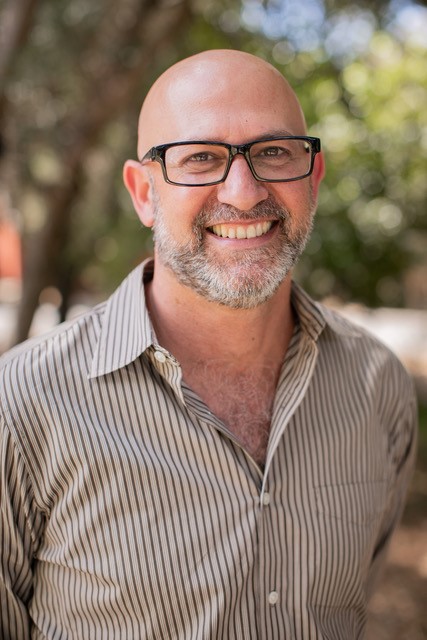 April 29, 10:30 a.m.
April 29, 10:30 a.m.
Guy Grossman, University of Pennsylvania
Title: Voted In, Standing Out: Public Response to Immigrants' Political Accession
Center for Public Policy Speaker Series
10:30am-12:00pm, Science Building, Room 101
Info for about the speaker: www.guygrossman.com
Professor at the political science department at the University of Pennsylvania. His research is in applied political economy, with a substantive focus on governance, migration and forced displacement, human trafficking, and conflict processes, (mostly) in the context of developing countries.
Founder and co-director of Penn’s Development Research Initiative (PDRI). Launched in 2020, PDRI brings together faculty and graduate students from across Penn whose research seeks to identify solutions to the challenges facing low- and middle-income countries. PDRI seeks to foster impactful international development research by harnessing the expertise of its affiliates from various disciplines and utilizing diverse methodological approaches.
 April 21, 4 p.m.
April 21, 4 p.m.
Anne Meng, University of Virginia
Title: Power Sharing and Authoritarian Stability: How Rebel Regimes Solve the Guardianship
Dilemma
Center for Public Policy Speaker Series
Location: Science Building Room 105
Abstract: Regimes founded in rebellion are, typically, extremely durable. We propose that this stability is founded upon peaceful power sharing between the rebel regime leader and military elites. Amid long and intense fighting, rebel leaders must delegate control to top military commanders because doing so helps them to win battles. After seizing power, power-sharing deals between former combatants are highly credible due to their history of interactions, which mitigates the guardianship dilemma. Elsewhere, a persistent internal security dilemma often undermines power-sharing deals. Using originally collected data on African regimes from 1960–2017, we establish that rebel regimes break down seldomly compared to other authoritarian regimes, and experience fewer coups. Regarding the mechanism, rebel regimes more frequently share power with military elites by appointing a Minister of Defense. These Ministers are typically high-ranking members of the rebellion, which reflects the regime’s replacement of the state military with their own.
About the speaker: Anne Meng is an Assistant Professor in the Department of Politics at the University of Virginia. Her research centers on authoritarian politics, institutions, and elite powersharing. Her book, Constraining Dictatorship: From Personalized Rule to Institutionalized Regimes (Cambridge University Press, 2020), examines how executive constraints become established in dictatorships, particularly within constitutions and presidential cabinets. She has also published articles on authoritarian ruling parties, opposition cooptation, term limit evasion, and leadership succession in top journals, including the APSR and BJPS.
April 19, 4 p.m.
Diana Moreira, University of California, Davis
Title: Who Benefits from Meritocracy?
Location: Science Building Room 105
Political Economy Speaker Series co-hosted with the Department of Economics
Those interested in attending should contact hobbycpp@central.uh.edu for the zoom link
About the speaker: Dr. Diana Moreira is an Assistant Professor at the University of California, Davis, Department of Economics. She is also a Faculty Affiliate at Bureau for Research and Economic Analysis of Development BREAD and at the Center for Effective Global Action CEGA, an Invited Researcher for JPAL and Weiss Family Fund, and a Lemann Fellow. Dr. Moreira’s current research focus is in the field of Development Economics, in particular, its intersection with Public, Political and Organizational Economics. She is interested in two topics, poor governance in governments and social mobility, both of which she studies in the developing economies context. Her research has been published in the American Economic Review, in the Journal of Public Economics and has been featured in leading Brazilian media outlets. Dr. Moreira earned a PhD in Business Economics from Harvard University. She has worked in the World Bank at Washington DC supporting countries in the Latin America and Caribbean Region and countries in the South Asia Region.
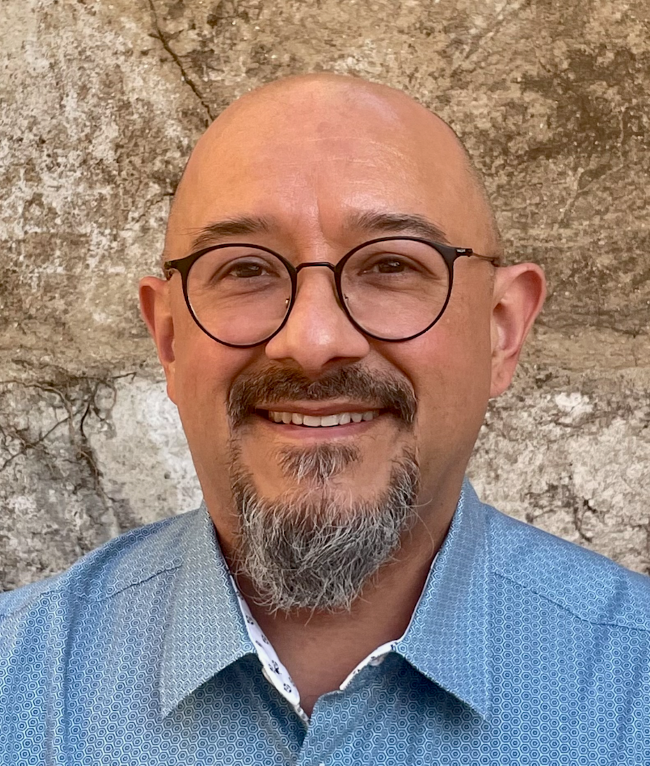 April 19, 1 p.m.
April 19, 1 p.m.
Pablo Valdez, retired US Foreign Service Diplomat
Title: U.S. Climate Change Policy and International Negotiations -- Where do we stand
on climate and where are we going?
Room 132 A in Roy Cullen Building
About the speaker: Pablo Valdez is a retired U.S. Foreign Service Diplomat and environmental
engineer who has focused most of his career on water, climate, and environmental issues,
particularly in Latin America. He served in the federal government for 22 years in
six countries, the Texas state government, and the private sector. Most recently
he was the Environment, Science, Technology, and Health Counselor at the U.S. Embassy in
Brasilia. He also served in Mexico City, Santiago, Washington DC, Jakarta, and Lima.
April 11, Time: 4 p.m.
Peter Gourevitch, University of California, San Diego
Title: Identity and interests in the polarization debate: Is Democracy in Danger and
Does the War in Ukraine make it worse?
Center for Public Policy Speaker Series
Location: S116
March 22, 4 p.m.
Brian Knight, Brown University
"Vote Early and Vote Often?: Detecting Electoral Fraud from the Timing of 19th Century
Elections"
Political Economy Speaker Series co-hosted with the Department of Economics
Science Building, Room S101
Those interested in attending virtually should contact hobbycpp@central.uh.edu.
March 3, 4 p.m.
“Reference Points and Democratic Backsliding,” Carlo Prato, Columbia University
(Co-author Edoardo Grillo, University of Turin - Collegio Carlo Alberto)
Political Economy Speaker Series co-hosted with the Department of Economics
Science Building, Room S101